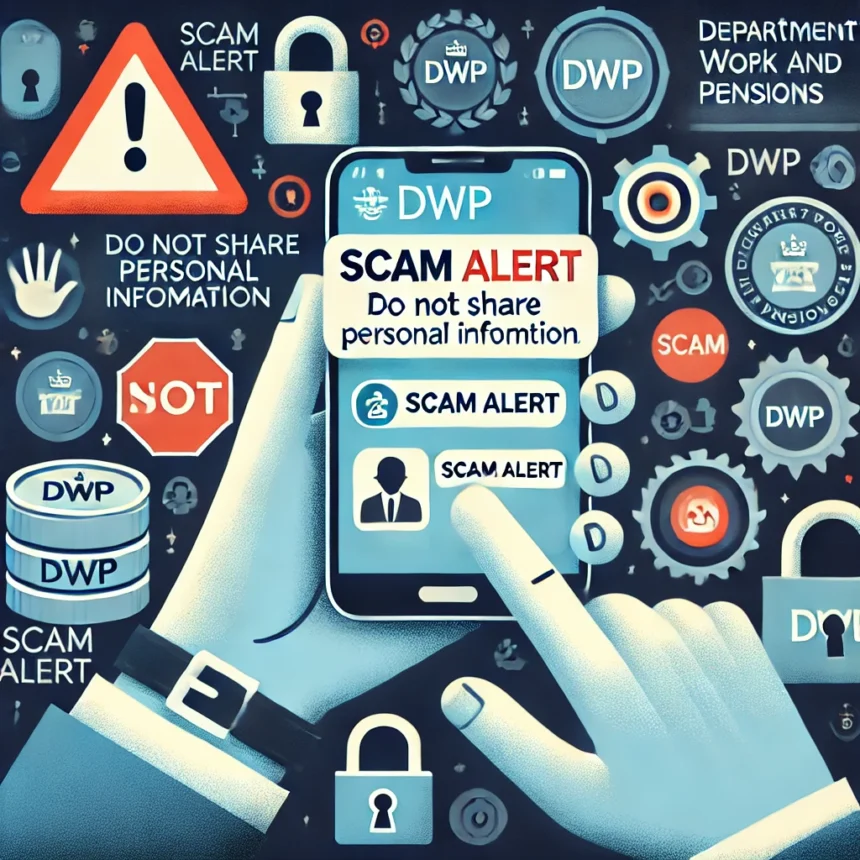Introduction to the Issue
The Department for Work and Pensions (DWP) has issued a critical warning to benefit claimants about a surge in text scams. These scams, designed to extract personal and financial information, are becoming increasingly sophisticated. In today’s digital age, staying vigilant against such fraudulent activities is more important than ever.
Understanding the DWP’s Role
What Is the DWP?
The DWP is a government department in the UK responsible for welfare, pensions, and child maintenance policy. It ensures financial support for those who need it the most.
Services Provided by the DWP
From Universal Credit to pensions, the DWP handles sensitive information and payments, making its users prime targets for cybercriminals.
The Rise of Scams Targeting Benefit Claimants
Why Are Benefit Claimants Targeted?
Benefit claimants often receive payments from the government, making them attractive targets for fraudsters seeking financial gain.
Types of Scams Commonly Seen
- Phishing Messages: Claiming to be from the DWP, asking for sensitive details.
- Fake Offers: Promises of additional benefits or payments.
How Text Scams Operate
Common Tactics Used by Scammers
Scammers employ tactics like sending phishing messages that mimic official communications or embedding fake links that lead to malicious websites.
Real-Life Examples of Scam Messages
Messages often claim issues with benefit payments, requesting immediate action to avoid disruption.
Warning Signs of Text Scams
Recognizing Fraudulent Messages
Look out for generic greetings, spelling mistakes, and urgent demands for personal information.
Red Flags to Watch For
- Requests for sensitive information via text.
- Links directing to unofficial websites.
Steps to Protect Yourself
Verify Messages with the DWP
Always cross-check with the DWP directly using official contact details available on their website.
Do’s and Don’ts When Receiving Suspicious Texts
- Do: Report the message.
- Don’t: Click on any links or share personal details.
What to Do If You’ve Been Targeted
Reporting Scams to the DWP
Forward suspicious messages to the DWP’s designated reporting number or email.
Recovering from Potential Losses
Contact your bank immediately if financial information has been shared.
The DWP’s Measures to Combat Scams
Awareness Campaigns
The DWP runs extensive campaigns to educate the public about identifying and avoiding scams.
Collaborative Efforts with Law Enforcement
They work closely with authorities to track down and penalize scammers.
Why Education Is Key
Informing Vulnerable Communities
Many victims are unaware of these scams, highlighting the need for widespread education.
Encouraging Digital Literacy
Promoting safe online practices can significantly reduce the risk of falling prey to scams.
Real-Life Case Studies
Stories from Victims of Text Scams
Hearing firsthand accounts from victims sheds light on the impact of such scams.
How They Managed the Situation
These stories emphasize the importance of immediate action and reporting.
Key Takeaways for Benefit Claimants
Always Verify Before Trusting
When in doubt, trust your instincts and double-check with official sources.
Resources for Support
The DWP offers resources to help individuals navigate these challenges safely.
Conclusion
Scammers continue to exploit vulnerabilities, but staying informed and vigilant can safeguard personal and financial information. By understanding the warning signs and taking proactive steps, benefit claimants can reduce their risk of falling victim to these scams.
FAQs
How can I verify if a message is genuinely from the DWP?
Check official communication channels or call the DWP directly.
What should I do if I clicked on a suspicious link?
Immediately change your passwords and notify your bank.
Are there any tools to help detect phishing attempts?
Yes, tools like antivirus software and email scanners can help.
How does the DWP communicate with benefit claimants?
Typically through official letters, online accounts, or verified numbers.
What is the penalty for scammers if caught?
They face severe legal consequences, including hefty fines and imprisonment.






